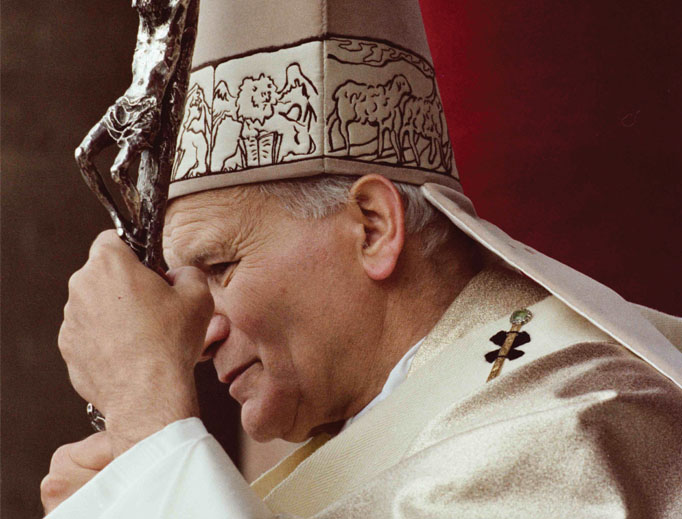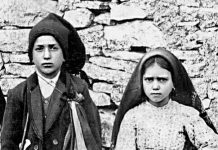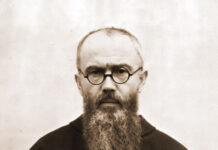May 18th would have been Pope Saint John Paul II’s 98th birthday, which would be old even for the oldest of Popes. Benedict, the XVIth of that title, turned 91 on April 16th, and Leo XIII reigned until the venerable age of 93, making him the oldest Pope in history. I am sure John Paul is celebrating in fine style in heaven.
In his company in heavenly bliss is the Pope we celebrate today, who was also named John (+526), without the Paul, the first Pontiff who took the name of the beloved Apostle. One wonders why it took five centuries to do so, but then Apostolic names are not all that popular with Popes. There has never been a Pope Matthew, Luke nor even Andrew; there was one Pope Mark who reigned less than a year, and, of course, the original Pope Peter. The prophecies of the 11th century Irish monk Malachy, likely-largely-apocryphal, declare that the second ‘Peter’ will be the last Pope at the end of the world. One has to wonder.
Pope John I, already frail when elected, was sent by the king Theodoric to Emperor Justin at Constantinople, to seek better treatment for the Arians, a heresy to which Theodoric, along with most of his barbarian compatriots, heartily subscribed. It was, I suppose, easier to grasp than the complexity of the dual natures of Christ (heresies of which caused so much strife in Byzantium), and His ontological relational status within the Trinity (ditto). Much more simple to make Him (or, for them, him) a more pliable creature, to whom they need not fully submit. After all, only God has full authority, and if Christ is not God, well then, who’s to stop the king?
Pope John mostly succeeded in his diplomatic mission; Emperor Justin received the Pope warmly, but did not grant one or two concessions. So upon his return, Theodoric in a fury had the Pope thrown into prison, where he died of neglect and ill-treatment, hailed as a martyr for the truth.
Saint Malachy had another prophecy attributed to him, that Ireland would be inundated by the sea before the Emerald Isle lost the faith. We are in the countdown to this once-staunchly Catholic nation possibly legalizing surgical abortion (the abortifacient Pill is already widespread), so perhaps those melting ice caps mean something after all. We are all hoping and praying for the best, but one must remember that a society cannot maintain a moral foundation, at least for long, without Catholicism, and the fullness of truth she offers. As Ireland has lost the faith, she has also lost reason and right sense, and this new paganism will be worse than the old form found by Saint Patrick; for the young Irish, all those miseducated millennials, have by and large rejected their religion, and, barring a miracle, there is little chance of making it ‘new’ to them again, as it was to their ancestors. But we are a people of hope, and miracles do happen.
Across the Irish Sea, in the royal town of Windsor, Harry and Meaghan will tie the knot tomorrow. I wrote before that Ms. Markle is divorced, so enters this relationship with some baggage, but whether that prior marriage was a real one is up for debate. Matrimony is a natural reality before it is a supernatural one, and requires that both bride and groom promise and intend the three ‘goods and requirements’ for the marital state: Sacramentum, indissolubility unto death, fides, total fidelity to one’s spouse, and proles, openness to children. I am not sure what the ‘royal’ version of Anglicanism believes about marriage anymore, having come a long way from the time Henry VIII began making a mess of things, nor what the future royal couple hold in their heart of hearts, but here’s praying for the best for them, and their future children.
Popes Saint John and John Paul, and, while we’re at it, Saints Patrick and Malachy, orate pro nobis!












